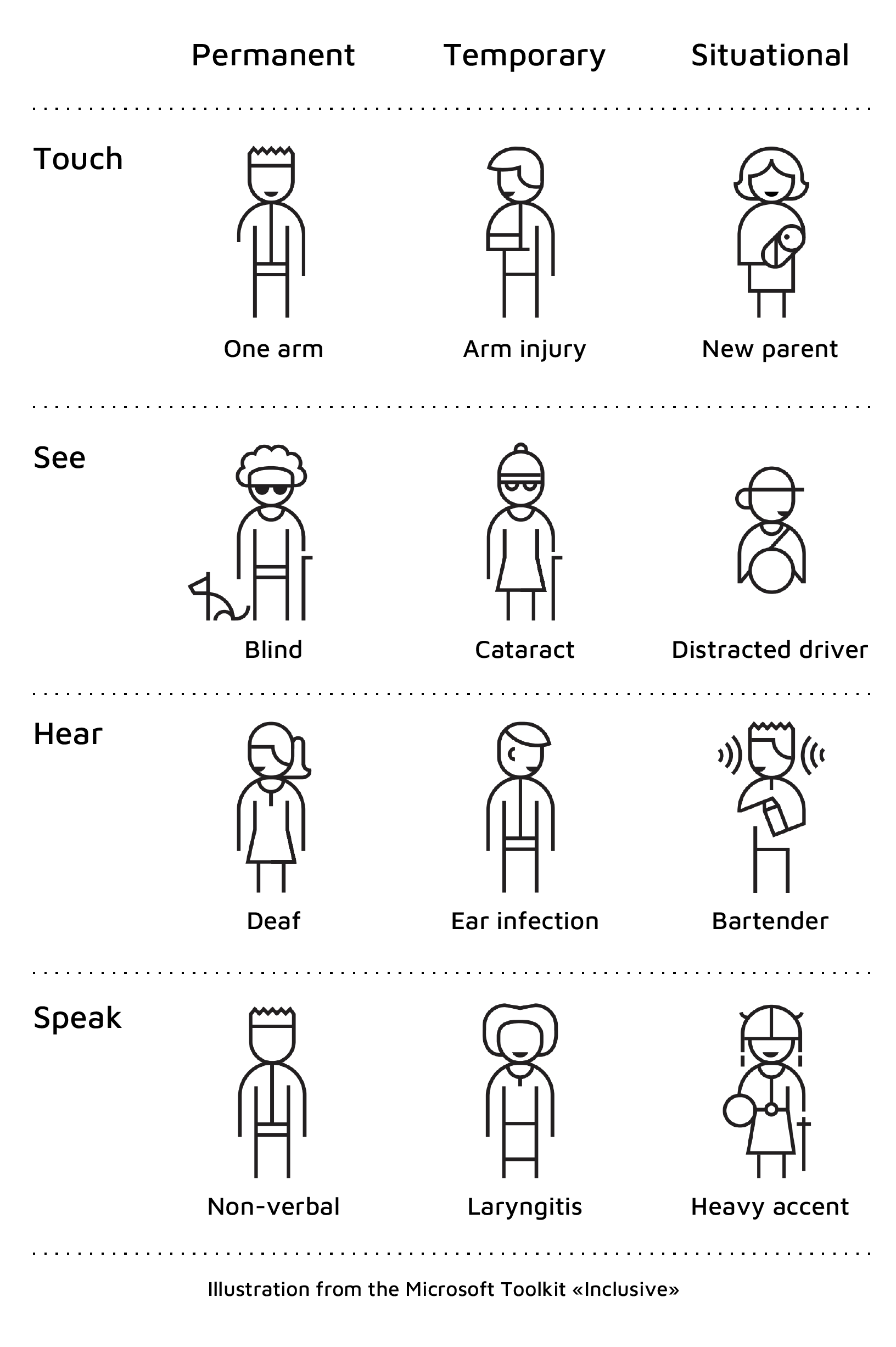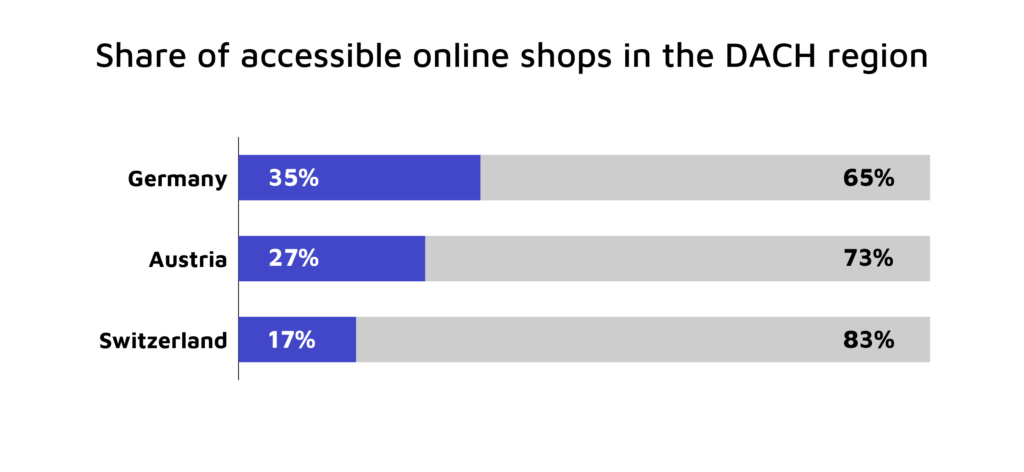Highlight

Successful together – our valantic Team.
Meet the people who bring passion and accountability to driving success at valantic.
Get to know usDecember 19, 2024

The increasing importance of digital accessibility in e-commerce extends beyond compliance with legal standards. A joint market study by valantic and AIOPS evaluates the accessibility of the 75 top-grossing online stores across Germany, Austria, and Switzerland.
The findings are particularly alarming for businesses in Switzerland: Swiss online stores average just 57 out of 100 points – far below the recommended benchmark of 90+. The study underscores critical gaps and delivers a strong message to companies: Investing in digital inclusion is both necessary and beneficial.
Digital accessibility benefits everyone – not just individuals with permanent disabilities. As highlighted in the Microsoft “Inclusive” toolkit, temporary and situational limitations can also pose barriers that inclusive design helps to overcome. In an ageing society, its importance continues to grow as common age-related challenges like impaired vision or hearing are becoming more common. Accessible design fosters an inclusive environment where everyone, regardless of age or circumstances, can engage and participate fully, without limitations.

The market study assessed the 75 top-grossing online stores in Germany, Austria, and Switzerland, focusing on digital accessibility. Using the Qualibooth tool, key website sections such as the home page, product listing page (PLP), and product detail page (PDP) were analyzed for the number of errors and their severity to evaluate accessibility for all users.
Critical errors block essential functions altogether, rendering the page inaccessible for people with disabilities and requiring immediate attention. High-priority errors significantly impair usability but do not fully block access, demanding prompt fixes. Medium-priority errors have a lesser impact on user experience and can be addressed during subsequent optimizations. This approach helps prioritize barriers for resolution.
The study revealed widespread weaknesses in digital accessibility across German-speaking countries. Alarmingly, only 25 percent of the top 75 e-commerce stores are virtually barrier-free. Switzerland showed the greatest need for action, with just 17 percent of stores meeting WCAG 2.1-AA guidelines, compared to 35 percent in Germany. These results indicate that most companies fail to meet legal requirements.

It is especially concerning that nearly 60 percent of the errors identified across all tested online stores in German-speaking Europe were classified as critical or high priority. On average, 118 errors were detected per page, with one page showing as many as 675 errors.

Swiss online stores average just 57 out of 100 points on the accessibility score. Alarmingly, 40 percent of stores score below 50 points – a range deemed particularly critical. While the recommended target for digital accessibility is over 90 points, only four of the 25 stores surveyed managed to reach this threshold. The implications of these low scores are significant, including restricted access for key customer groups, reduced visibility, rising development costs, legal risks, and potential reputational harm.
These figures highlight the pressing need for Swiss e-commerce to approach digital accessibility not merely as a legal requirement, but as an opportunity to expand their market reach and improve the user experience. Accessibility is not just a compliance issue – it represents a decisive competitive advantage in the e-commerce landscape.
A lack of digital accessibility not only leads to legal risks and possible sanctions but also directly impacts customer satisfaction. Studies show that 88 percent of customers are unlikely to return to a website after a poor experience (Equation Research). This means that inadequate accessibility not only limits access for people with disabilities but also results in lost sales.
However, there are also opportunities for companies to seize. By implementing targeted measures for digital accessibility, businesses can not only comply with legal requirements but also enhance the user experience for all visitors. In e-commerce, accessibility improvements lead to benefits in key areas:

More blog articles
Read more about how to prepare for the European Accessibility Act (EAA).
E-commerce companies in German-speaking Europe can follow these clear steps to improve digital accessibility:
valantic offers end-to-end support for digital accessibility: From the initial analysis to implementation and ongoing optimization, we are your reliable partner. With a comprehensive portfolio that includes accessibility quick checks, expert consulting, complete digital accessibility solutions, and legal advice through our trusted partner, valantic provides businesses with diverse options to achieve compliance and foster digital inclusion. Find out more on our website!
The findings of the accessibility market study are a clear call to action: E-commerce companies in DACH region have a unique opportunity to use digital accessibility as a differentiator and to foster greater customer loyalty. Complying with legal requirements not only safeguards against potential sanctions but also unlocks access to a broader and often highly loyal customer base.

Accessibility with valantic
Find out how valantic can support your company on the path to digital accessibility – explore our solutions and services!
Don't miss a thing.
Subscribe to our latest blog articles.